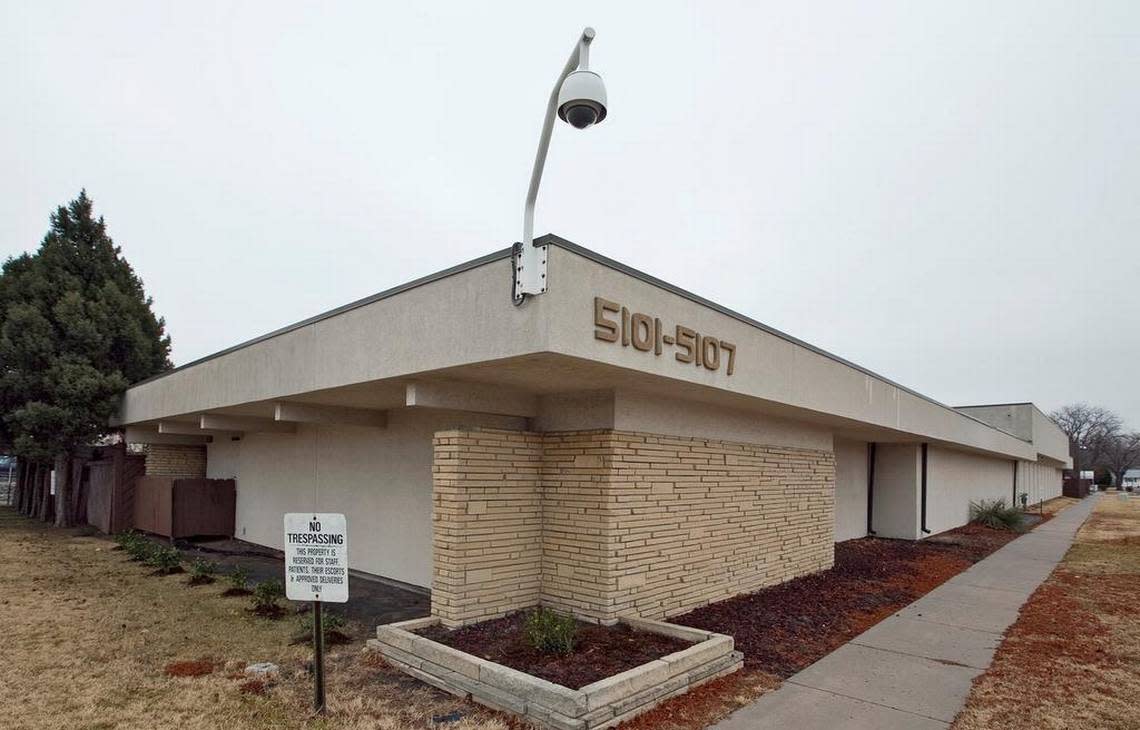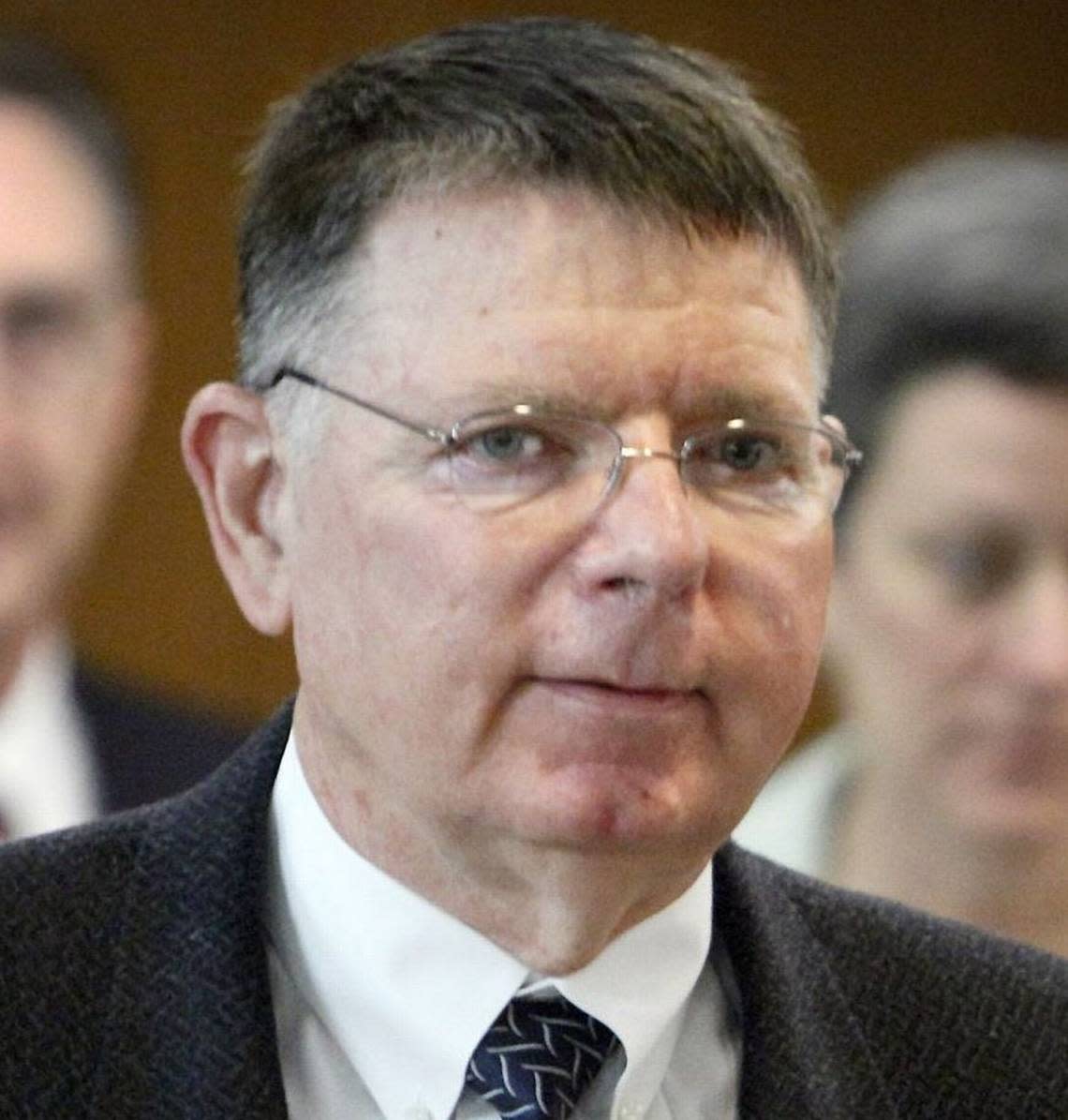After Summer of Mercy: More protests, violence and the murder of a doctor
The Summer of Mercy demonstrations in 1991 put Wichita squarely in the national spotlight, but it was far from the first display of anti-abortion activism in the city, which Operation Rescue President Troy Newman deemed the “late-term abortion capital of the world.”
Most abortion opponents took up signs and distributed literature outside city clinics. Some, however, resorted to violence.
In 1986, an anonymous anti-abortion activist pipe-bombed Dr. George Tiller’s clinic on East Kellogg, causing $100,000 in damage. Three days after the attack, in a show of defiance, Tiller planted a sign in front of the building that read “Hell no! We won’t go!”
Linda Stoner began working for Tiller in 1993, six weeks after he was shot in both arms during an assassination attempt by extremist Shelley Shannon. Tiller returned to work the next day.
“He made me a stronger person to stand up for what I believe in, and he did a lot for women,” Stoner said.
In the 10 years that Stoner worked at the Women’s Health Care clinic, Tiller saw patients from 9 to 50 years old.
“They came there because they were in crisis,” Stoner said.
“One of the things that people don’t realize is, [Tiller] also made arrangements for people to adopt children. He helped women of all ages and of all faiths and all nationalities.”
It was Stoner’s job to answer the clinic phone, making her the first point of contact for women seeking abortions. Some of those calls have stuck with her throughout the years.
“I can remember one distinct patient calling, and I said, ‘What if we cannot help you?’ She says, in a flat voice, and it was chilling, ‘I will kill myself,’” Stoner said. “She was in her 20s. She was backed up against a wall. It still sends chills down my spine to hear that, because she goes, ‘I have no other options.’”

Information and intimidation
Over the years, Stoner became accustomed to seeing anti-abortion protesters demonstrating outside the clinic.
Much of those efforts were headed by Mark Gietzen, chair of the Kansas Coalition for Life and president of the Kansas Republican Assembly, who still coordinates “sidewalk counseling” outside Wichita’s Trust Women and Planned Parenthood clinics.
“I do organize the team of people that go out and offer literature to the women going in for an abortion, or an informational type thing, holding signs and so on,” Gietzen told The Eagle.
“It’s just terrible that we don’t have a better safety net for these women. They have an abortion because they can’t afford the ones they already have or it’s their first one and they’re not ready. Their parents are going to throw them out of the home or they already are separated from their parents and the boyfriend is irresponsible and all he sees is the possibility of having to pay child support. And they have no idea how valuable every child is.”
Gietzen also documents unusual activities at clinics, including when ambulances are called to the facilities, and drives a box truck-style “Truth Truck” emblazoned with a graphic image of an aborted fetus on behalf of Operation Rescue, which relocated its national headquarters to Wichita in 2002.
“It’s bumper sticker material that hasn’t been cut into small little sheets. It’s a huge sheet put on the entire side of the truck,” Gietzen said. “On one side, it says ‘Every abortion is an act of violence.’ And people know that that’s true but they hate that truth. Then, right below that, a picture of an aborted baby. And it makes it impossible to argue and people get angry.”
Even the sensational imagery of the Truth Truck became commonplace for Stoner during her time at Tiller’s clinic. Intimidation tactics while she was off the clock were more jarring.
Once, she said, an elderly couple approached her in the grocery aisle of a supermarket and began berating her.
“They said, ‘Are you Linda Stoner?’ And I looked at them and I really just hesitated and didn’t say anything. And they started screaming that they knew where my children went to school,” Stoner said. “They named their names. They named the kids that got on the same bus.”
Meghan Bean, an abortion-rights activist, also endured intimidating tactics when she began working at a clinic. She said her son was kicked out of his preschool because protesters sent a postcard to his school saying his mom worked at an abortion clinic.
When her mother, abortion-rights activist Candy Krueger, died in 2005, there were protesters at her funeral.
“This is the life that we live being pro-choice and being activists in the community,” Bean said.
The ultimate price
Tiller hired armed guards to protect his clinic and drove an armored SUV. He often wore a bulletproof vest while attending services at Reformation Lutheran Church.
That’s where he was, handing out bulletins to parishioners on the morning of May 31, 2009, when a lone gunman, 51-year-old Scott Roeder, fatally shot him once in the head.

The previous March, Roeder had attended Tiller’s trial at the Sedgwick County Courthouse. A jury took less than 30 minutes to acquit Tiller of all charges after he was accused of violating a provision of Kansas abortion law that requires a second doctor’s opinion before the procedure is done. At the time, Roeder angrily dismissed the trial as a “sham” to a fellow abortion activist, The New York Times reported.
Operation Rescue condemned the doctor’s slaying.
When Roeder was arrested along Interstate 35 in Johnson County the same day he shot Tiller, a television station captured the vehicle on video, displaying a note on the dashboard with the name and number of Operation Rescue’s senior policy adviser, Cheryl Sullenger.
Sullenger, who served two years in prison for conspiring to bomb a California abortion clinic in 1988, had sinced renounced violent action. She told reporters that Roeder had contacted her for details about court proceedings against Tiller.
“The biggest lie that anybody could say is that Scott Roeder is pro-life,” Gietzen said. “Pro-life people, we think that God has a right to choose who lives or dies . . . But we say humans don’t have a right to take another human life because once that life is taken, we can’t put it back together again.”
Roeder first approached Gietzen outside a clinic where he was overseeing sidewalk counseling to ask if he had contact information for another activist. Gietzen said he later found out the man in question had died.
“Scott shows up out at the gate and he’s talking to me,” Gietzen said. “I’m saying, ‘Hey, do you want to sign up? You’re pro-life. Why don’t you sign up and take a shift out here?’”
Roeder rebuffed him, saying he ran a “raggedy, (expletive) pro-life group,” Gietzen remembers.
Trust Women clinic
Less than three months after Tiller’s murder, Operation Rescue teamed up with several other anti-abortion groups to mount a “Keep it Closed” campaign aimed at discouraging other abortion providers from re-opening Tiller’s clinic.
But that wasn’t enough to dissuade Julie Burkhart, who had been working alongside Tiller for seven years when he was killed.
“It was no more than two weeks after his funeral that I was working on plans to establish Trust Women,” Burkhart said.
“That’s what tragedy and anger does to people. It leads us all in different directions, and I think my answer to my feelings about that personal tragedy was, we can’t let them have the last word.”
It took four years, but Wichita’s Trust Women clinic opened in 2013 at the East Kellogg site of Tiller’s former practice. Burkhart got the name from the “Trust Women” buttons that Tiller often wore.
“Those of us who were very close to Dr. Tiller, we knew the risk. We knew the environment,” Burkhart said. “We knew what was happening in terms of how the anti-choice people were trying to shut him down. In a way, to do this work, you have to be desensitized to it. Otherwise, I’m not sure people could get out of bed every day.”
In 2016, Burkhart established a second Trust Women clinic in Oklahoma City. That facility hasn’t provided abortions since Oklahoma Gov. Kevin Stitt signed the nation’s strictest abortion ban into law in May.
In January, Burkhart moved to Wyoming to establish the Wellspring Health Access clinic in Casper. The clinic opened on schedule, even though the building was damaged in a May fire that police think was set deliberately.
But Wyoming Gov. Mark Gordon signed a bill in March green-lighting an abortion ban trigger law that would go in effect when the Supreme Court overturned Roe v. Wade. That law is now in effect.
Under the Kansas Supreme Court’s 2019 ruling, Kansas citizens have the right to an abortion and bodily autonomy.
A “yes” vote on the Aug. 2 constitutional amendment would reject that decision, leaving it up to state legislators to regulate abortion. A “no” vote would affirm the constitutional right to an abortion in Kansas.
